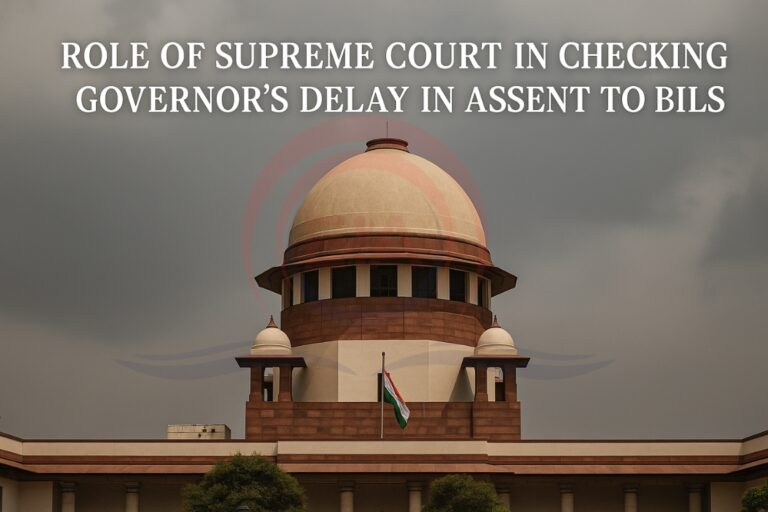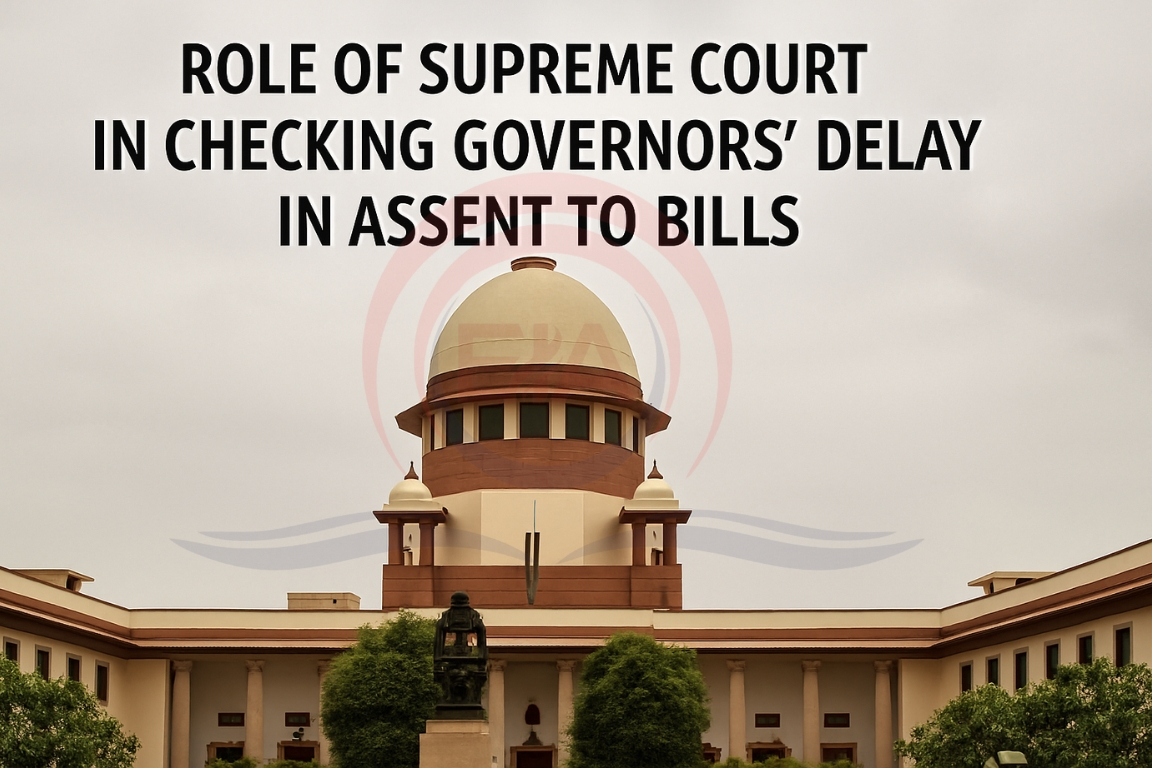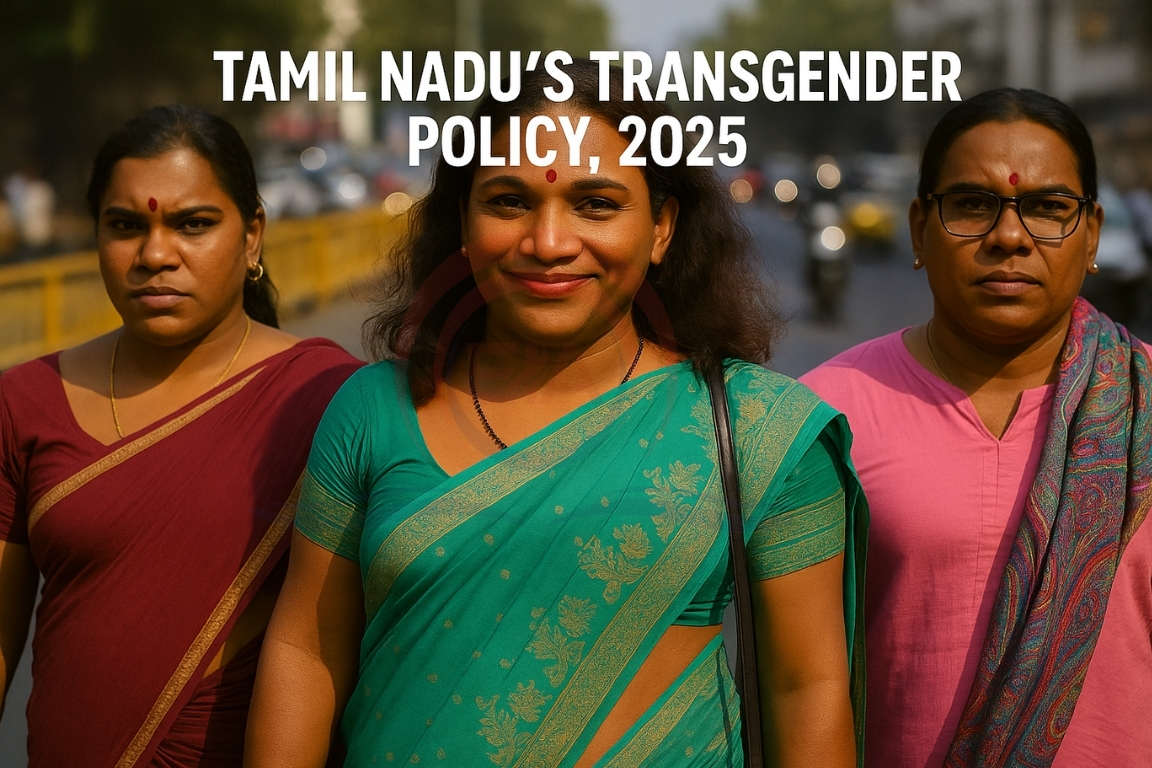Recently, Chief Justice of India (CJI) B.R. Gavai raised concerns over Governors delaying assent to State Bills for years, thereby obstructing legislative functioning. The debate has once again highlighted the tussle between constitutional morality and political discretion in India’s federal structure.
Issue of Delay by Governors
- Governors, under Article 200, have options regarding State Bills—assent, return, withhold, or reserve for the President’s consideration.
- In practice, some Governors have delayed decision-making indefinitely, creating a legislative deadlock.
- Example: The Tamil Nadu Governor kept important Bills pending for nearly four years without communication.
- Such inaction hampers the democratic will of elected assemblies and questions the accountability of constitutional heads.
Supreme Court’s Position
- In April 2024 judgment, SC held that Governors and the President must decide on Bills “as soon as possible”, implying a reasonable time limit.
- Thus, judicial review of Governor’s inaction is justified to prevent misuse of constitutional offices.

Relevance in Federal Politics
- Governor–State tussles are frequent in non-ruling party states:
- Kerala – Governor returned University Bills, citing autonomy concerns.
- Punjab and Telangana – Governors withheld crucial fiscal and welfare Bills.
- Such incidents raise questions on whether Governors act as neutral constitutional heads or as agents of the Union government.
Way Forward
- Clear guidelines or constitutional amendments may be required to define a time-frame for Governors’ assent.
- Need to uphold federal balance and legislative sovereignty of elected assemblies.
- Judicial oversight should act as a check on arbitrariness, without undermining legitimate discretion.
Conclusion:
The debate underscores a larger constitutional dilemma—should the Supreme Court intervene to safeguard democratic functioning when Governors delay Bills indefinitely, or should such matters remain in the political arena? A balanced approach that respects separation of powers, while ensuring accountability of constitutional offices, is essential for strengthening India’s democracy.





